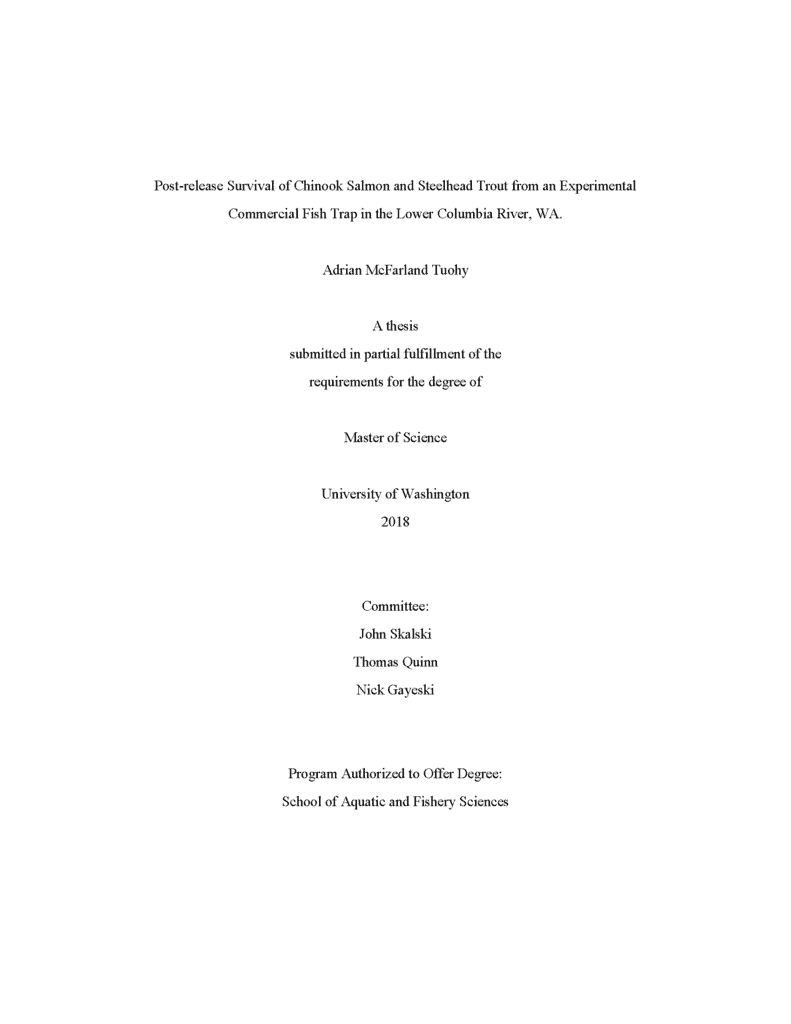
Description |
|---|
Gillnets and other conventional harvest techniques utilized in mixed-stock commercial salmon fisheries frequently result in bycatch mortality. In many parts of the U.S Pacific Northwest, bycatch and hatchery impacts impede the recovery of Endangered Species Act (ESA)-listed salmonids and constrain commercial fishing opportunities. For the benefit of wild salmon, threatened ecosystems, and coastal fishing communities, a post-release survival study was conducted on the lower Columbia River to evaluate the potential of an alternative commercial gear—an experimental pound net trap—as a live-capture, stock-selective harvest technique. Expanding upon a 2016 pilot study, a modified trap was constructed and operated under a variety of tidal stages, light levels, and weather conditions between August 26 and September 27, 2017. Utilizing a paired mark-release-recapture procedure with Passive Integrated Transponder (PIT) tags, post-release survival from the trap was estimated through the Cormack-Jolly-Seber method; catch-per-unit-effort (CPUE) and covariates of CPUE were analyzed through Generalized Linear Models (GLM). Results demonstrated that pound net traps can effectively target commercially viable quantities of hatchery reared fall Chinook (Oncorhynchus tshawytscha) and coho salmon (O. kisutch) while reducing cumulative bycatch mortality of ESA-listed species relative to conventional and alternative commercial gears. During the study period, 7,129 salmonids were captured and released. The ratio of wild to hatchery-origin salmonids captured was approximately 1:3. Cumulative survival to McNary Dam ranged from 94.4% for steelhead trout (O. mykiss) to 99.5% for Chinook salmon, warranting application of the gear as a stock-selective harvest tool in commercial salmon fisheries. Master’s Thesis by Wild Fish Conservancy’s Adrian Tuohy |
File Attachment |
|---|
Download |